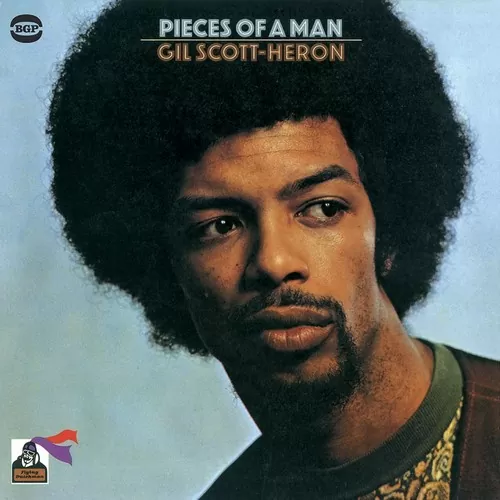Once
in a while, we come across art that encapsulates a moment in history. These
works have the power to seemingly transport us to the period in which they were
created, imparting the perspective of a time that we've never experienced. This
is how I felt when I first heard Gil-Scott Heron's debut studio album, Pieces of a Man. Released in 1971, the album is a genre-bending
11-track journey containing elements of soul, blues, jazz, funk, and spoken
word. Through each song, Scott-Heron melodically grapples with topics ranging
from social inequalities to the personal struggles of addiction. The most
widely known track on the album is the opening "The Revolution Will Not Be
Televised", which has been immortalized for its poetic call to action.
Scott-Heron has expressed that the song is about the change that you must make
in your mind before you can change the way that you live. At the
conclusion of this track, we transition into the serene “Save the Children”,
one of my favorite songs on the album. The lyrics serve as a captivating plea
to make the world a better place for the youth that follow in our footsteps. Scott-Heron
sings “right now they seem to play such a small part of the things that they’ll
soon be right at the heart of.” I appreciate the way in which Scott-Heron
conveys emotion through his vivid lyricism. This emotion helps the listener feel
the gravity of issues that he grapples with through each song. On the title
track, “Pieces of a Man”, we hear a narrator recount the tumultuous experience
of his father being laid off. He sings “I saw him go to pieces, he was always
such a good man.” In the closing track, “The Prisoner”, Scott-Heron articulates
the damage caused to a family when a man is “hounded by hatred and trapped by
fear.” The song seems to describe both a literal and figurative prison that has
left the man feeling unseen and unheard. When we consider the context in which Pieces
of a Man was released in the early 1970s, the subject matter on this album
is even more compelling. This period followed the strife of the 1960s and saw a
carryover of the Vietnam War, the Black power movement, and the dawning of an
economic recession. This atmosphere is conveyed through tracks like “A Sign of
the Ages” and “The Needle’s Eye”. On the
latter, Scott-Heron sings “All the millions spent for killing, seems the whole
world must be dying; all the children who go hungry, how much food we could be
buying.” The song captures the sorrow of someone observing these world crises
with little power to change them. While societal issues are a prominent theme
on the album, Scott-Heron also provides tracks that are more introspective. Songs
like “Home Is Where the Hatred Is” and “I Think I’ll Call It Morning” paint the
picture of a man seeking to find solace within his environment. We also get
songs like “Lady Day and John Coltrane” and “When You Are Who You Are” that are
both uplifting and reassuring. The breadth of emotions and subject matter on
this album certainly fits the title. Pieces of a Man showcases the
complexities within an individual just trying to make it through life. Scott-Heron
demonstrates the ebbs and flows of the human experience through each track in a
way that allows the listener to step into the world as he sees it. On “Or Down
You Fall”, Scott-Heron sings “and now you know I’m only human instead of all
the things I’d like to be, the world is just a simple circle, you’ve got to
keep on turning.” These lines stand out to me because they demonstrate the power
in learning the “pieces” of a person’s story. Through this learning we build a
deeper appreciation of that person’s humanity. People, like the world, are much
more complex than we perceive them to be. Over 50 years later, Pieces of a Man contains
messages that I believe can inspire and connect with people today.
Friday, March 1, 2024
Classic Album Reflection: Pieces of a Man
Subscribe to:
Comments (Atom)
